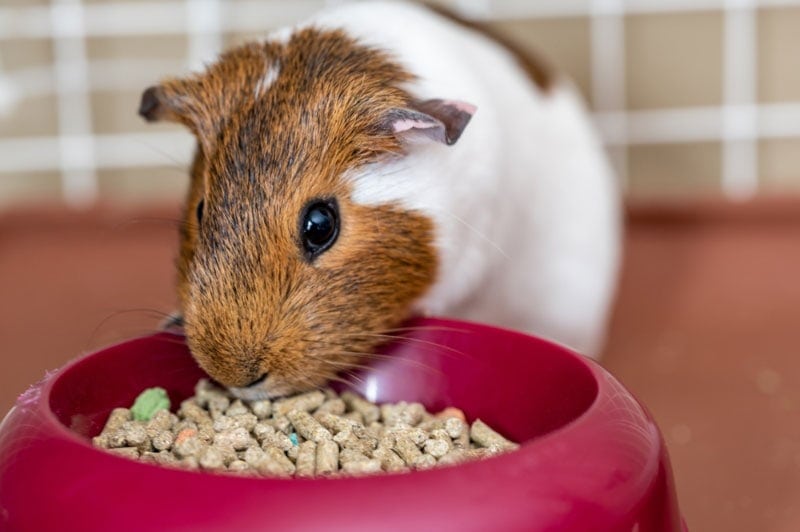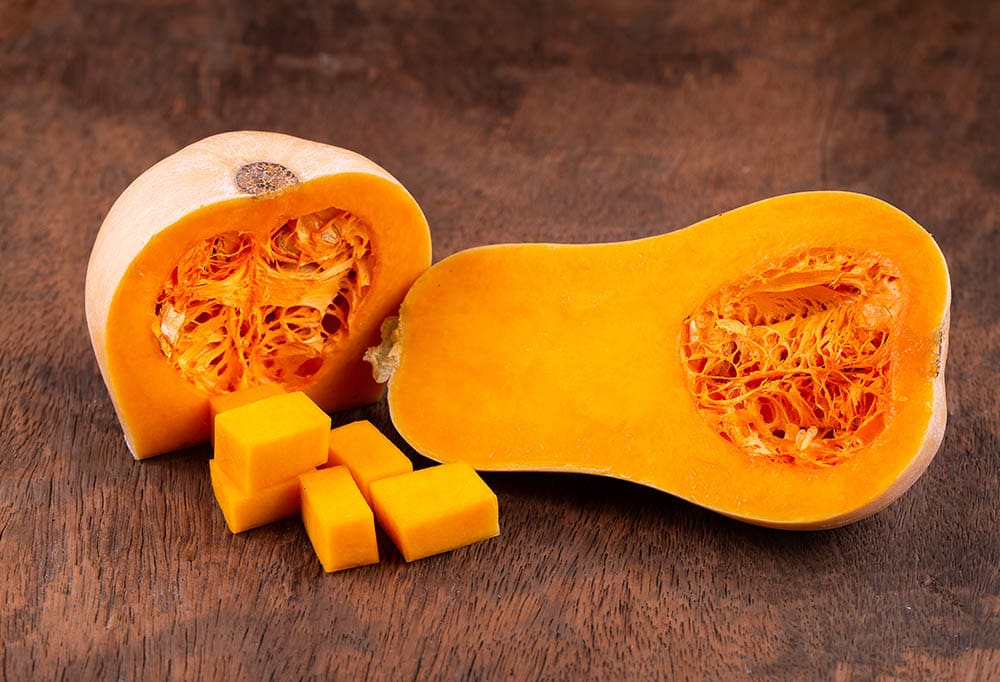
Click to Skip Ahead
Every guinea pig parent aims to feed their adorable pets the best diet. Making a meal plan that will fit all their nutritional needs is easier said than done, mainly because their diets are based on hay and grass. Since guinea pigs are herbivores, feeding them vegetables daily and fruits occasionally does benefit them, so plants such as squash can be a great addition to their regular meal.
Read the article below to learn more about the safety of feeding your guinea pig butternut squash.
Ideal Guinea Pig Diet

Since guinea pigs are true herbivores, their diet is mostly based around hay and grass, herbs, veggies, and even some plants such as dandelions. Guinea pigs’ diets must be based on hay and grass for their digestive systems to function correctly,1 around 85% or their diet. Since guinea pigs require particular nutrients such as vitamin C to stay healthy, feeding them fresh grass-based pellets daily is also recommended.
You can also provide your pet with fresh and thoroughly washed greens daily as an additional vitamin C source. The best vegetables to feed your guinea pig are green leafy vegetables. Staying as close to their natural diet as possible is always a good idea, and since guinea pigs don’t naturally eat root vegetables or fruits, you should only offer them in small amounts. So, while carrots, sweet potatoes, and apples have their benefits in guinea pigs’ diet, it is essential to stay moderate when feeding.
Maintaining an ideal diet for these sweet animals is important for various reasons, from providing enough nutrients to stay healthy to keeping good dental health. Eating hay also ensures that guinea pigs’ teeth remain at the right length and shape by wearing them down. The key to a healthy guinea pig diet is having available unlimited amounts of good quality hay.2
Is Butternut Squash Safe for Guinea Pigs?
Butternut squash is a winter squash with a similar taste to pumpkin. While some guinea pigs might adore the taste of squash, others may not care for it. For those keen on this delicious snack, learning that squash has benefits is excellent news. There are several types of squash, and they are all safe for guinea pigs to consume in moderation. Varieties of squash include zucchini, butternut squash, acorn squash, yellow squash, pumpkin squash, and others. Butternut squash is filled with vitamin C, calcium, phosphorus, and other minerals. It also has an excellent fiber content, which ensures healthy digestion.
Benefits:
Risks:

FAQ
How to Feed Guinea Pigs Butternut Squash?
When offering butternut squash to your guinea pig, it is best served raw and fresh. Washing the squash thoroughly before feeding is crucial to remove any bacteria, pesticides, or chemicals. Cut off the thick stem and remove the outer skin. While the skin won’t hurt your guinea pig, it might be a choking hazard. Most guinea pigs don’t enjoy the taste of skin on squash, so they may also end up avoiding it. Cut the squash into small cubes or bite-sized pieces. Seeds are another choking hazard, so you want to remove them too.
How Much Butternut Squash Can Guinea Pigs Eat?
As with any other food or vegetable, feeding your guinea pig butternut squash in moderation is essential. Fruits and vegetables should only be a supplement to their regular diet or an occasional treat. When introducing butternut squash to your guinea pig’s diet, you should start gradually to ensure your pet doesn’t get digestive upset. Start with a single bite of butternut squash and observe your pet for 24 hours. If there is no reaction in the form of stomach upset, you can continue feeding your guinea pig this treat.
It is recommended to use only butternut squash occasionally, such as one or two small pieces daily.
Conclusion
Once you learn about the risks and benefits of feeding your pet butternut squash, you can let your guinea pig enjoy this delicious snack without any worries. Butternut and other squash are entirely safe for your guinea pig if fed moderately and as an occasional treat. While this fruit has several benefits, it shouldn’t replace your pet’s regular diet.
Featured Image Credit: smith stockphoto, Shutterstock








